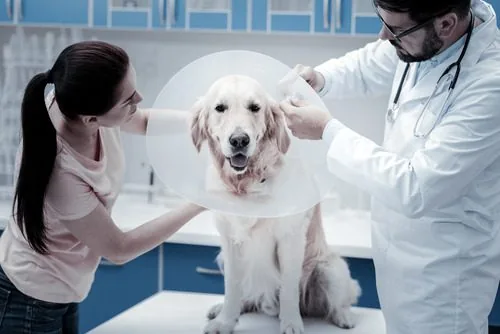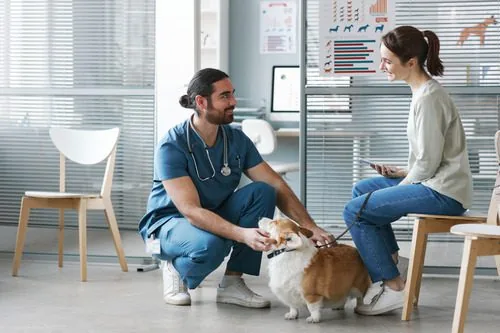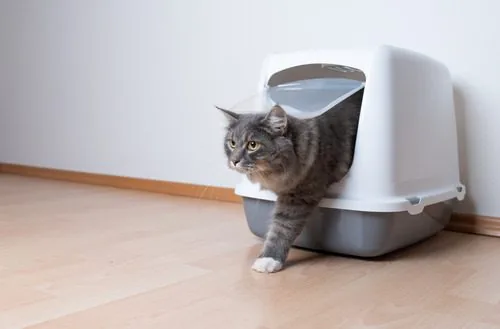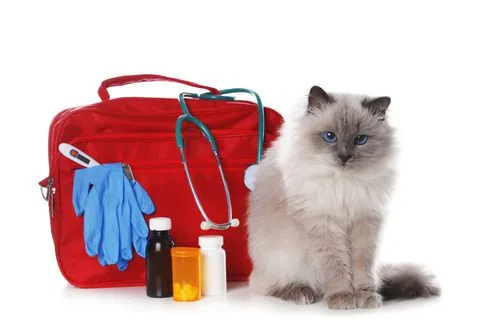Why is My Cat Meowing Loudly?
Cats have so many ways of communicating through vocalizations. Hissing, meowing, and purring are common things to hear in any household with cats. However, should you start to worry if your cat starts meowing loudly out of the blue?
Most of the time, young adult cats will meow loudly simply because they are bored or lonely. However, anxiety can cause meowing that is louder than usual from cats as well. Additionally, elderly cats may be meowing loudly because they are experiencing dementia or because their hearing is starting to go.
In this article, we will be explaining all of the potential causes for cats to meow loudly. We will also be providing you with some symptoms to look out for in your cat and explain when you should see a vet. Let’s get right into it!

Why do Cats Meow Loudly
Cats will meow loudly for many potential reasons. Oftentimes cats will meow loudly simply because they are bored or want attention. Other times, cats may be meowing loudly because they are anxious, sick, or in pain. Elderly cats start to meow loudly more often than young cats do. Here are all of the causes for loud meowing in cats.
1) Your Cat is Bored
Boredom can make a cat meow loudly. If you have a cat that is meowing loudly and seems to be up to no good, then boredom is likely the cause of their antics. This is especially true if you have a particularly playful cat that needs to be frequently entertained.
2) Your Cat is Lonely
Cats will sometimes start to exhibit loud vocalizations when they feel lonely or want their owner’s attention. This is often the cause of loud meowing for very affectionate cats, especially if they suffer from separation anxiety.
3) Your Cat is Anxious or Stressed Out
Anxiety and stress could cause a cat to suddenly start meowing loudly as well. This is especially true if you have recently made any large changes to their environment such as moving to a new house, getting a new pet, or having changes within the family.
While a little bit of stress or anxiety from your cat is not necessarily an emergency, working on making them feel more comfortable is advised. Similarly, you may benefit from speaking with a veterinarian if your cat has severe, chronic anxiety.
4) Your Cat is in Heat
Female cats will meow very loudly while in heat. They do this in an attempt to find a mate. Male cats may meow loudly in search of a mate as well, especially if there are females that are in heat close by. Luckily, this is only an issue in cats that have not been spayed or neutered.
5) Your Cat is Sick or in Pain
Cats will sometimes start to vocalize loudly when they are sick or in pain. Cats notoriously hide signs of pain and symptoms of illness, so loud meowing may be the only clue that something is wrong. If your cat is meowing loudly out of the blue, and the behavior is unusual for them, then taking them to the vet is a good idea. We will also be showing you some signs of pain and illness in cats that cat owners should look out for a little later in this article.
6) Your Cat is Getting Old
Cats will commonly start to meow loudly as they get older for a couple of different reasons. Cats tend to have a decline in hearing as they age. This will cause them to meow loudly because they cannot hear as well.
The other potential reason behind elderly cats meowing loudly is a bit more complicated. Cats sometimes start to meow loudly in old age because they are experiencing a form of dementia. While this can be troubling to cat owners, there are ways to make cats suffering from this condition calmer and more comfortable.
Signs of Pain in Cats
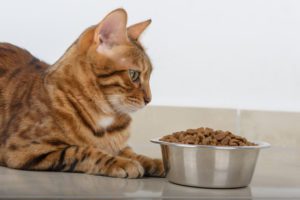
As we have mentioned, cats will often hide the signs that they are in pain. However, there are sometimes some subtle signs of pain in cats that cat owners can take note of. Your cat may be in pain if they are:
- less playful or energetic than they used to be
- having difficulty walking, jumping, or climbing
- moving around less often than usual
- excessively grooming or a show a sudden lack of grooming
- having an unusual posture when sitting, standing, walking, etc.
- showing unusual facial expressions indicating pain
- having a sudden onset of aggressive behavior
If you notice any of these signs of pain in your cat, then you need to take them to the vet immediately.
Signs of Illness in Cats
Like with pain, cats will often hide their symptoms of illness. Here are some signs that your cat may be sick:
- Lethargy
- Hiding
- Nasal discharge
- Discharge around the eyes
- Changes in the frequency of litterbox usage
- Fever
Of course, if you notice any of the above symptoms in your cat then this is a sign to make a vet appointment.
Signs of Dementia in Cats
Cats will sometimes develop dementia once they reach their elderly years, and this can cause loud and frequent vocalizations. Here are some other signs of dementia in cats for the owners of elderly cats to look out for:
- An increase in aggressive behaviors
- Signs of confusion
- Excessive grooming or sudden lack of grooming
- Having accidents outside of the litterbox
- A reduced appetite
- Sudden changes in their sleeping schedule
- Less playful than they used to be
When to See a Vet
You should take your cat to the vet as soon as possible whenever you suspect that they are sick or in pain. Additionally, some cat owners may benefit from taking their cats to the vet if they have severe cases of anxiety or dementia. This is because the vet may be able to prescribe your cat some helpful medication and provide you with advice on how to manage their symptoms.
If you have any questions about cat dog and their loud meowing, Veterinary Healthcare Associates in Winter Haven, FL is here to help. Reach out at (863) 324-3340 or book an appointment online!
Recent Posts
Laparoscopic Spay vs Traditional Spay: What’s Best for Your Dog?
Laparoscopic Spay vs Traditional Spay: What’s Best for Your Dog? When comparing a laparoscopic spay vs traditional…
Laparoscopic Spay: Everything You Need to Know
Laparoscopic Spay: Everything You Need to Know Laparoscopic spay, also called a “minimally invasive spay,” is an…
When is Dog Diarrhea an Emergency?
When is Dog Diarrhea an Emergency? Dog owners know all too well that occasional digestive upset isn’t…
Is Cat Constipation an Emergency?
Is Cat Constipation an Emergency? Cats are often private about their habits, especially when it comes to…
Feline Emergencies: Warning Signs Your Cat is Crying for Help
Feline Emergencies: Warning Signs Your Cat is Crying for Help Cats have a reputation for being independent,…
About Veterinary Healthcare Associates
Veterinary Healthcare Associates in Winter Haven, FL, was established over 30 years ago as Maxwell Animal Clinic by Dr. John Maxwell. Maxwell Animal Clinic was a one-doctor general practice offering preventive care, dentistry, and standard surgical services to the community. As the years passed, Maxwell Animal Clinic evolved into a thriving 10-doctor general, specialty referral, and emergency veterinary practice.

